Putting Theory into Practice: Brandt School Students Discuss the Energy Transition at Berlin Think Tanks adelphi and Agora Industry
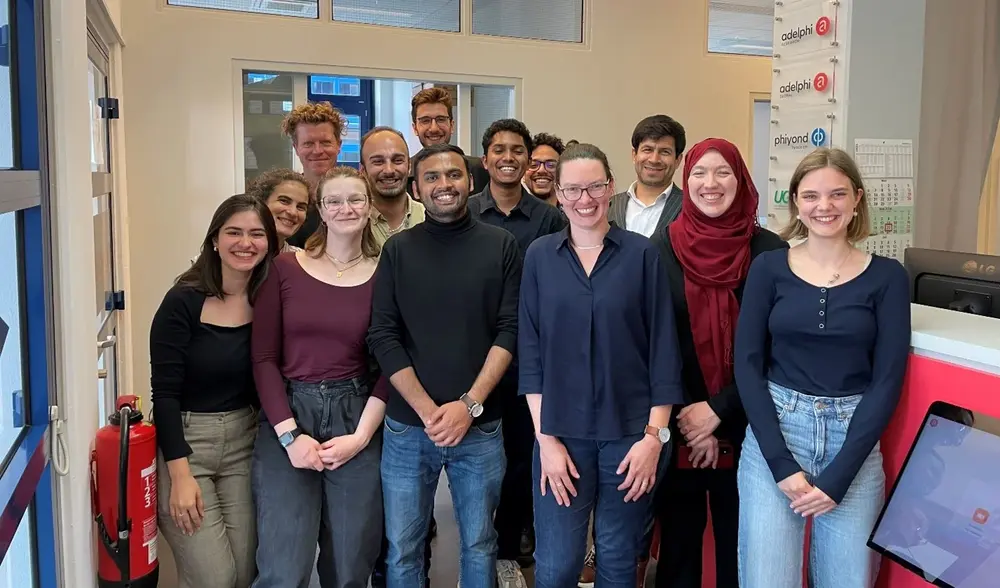
On June 20 and 21, Brandt School MPP students from Prof. Dr. Andreas Goldthau’s Politics of the Global Energy Transition (GET) class traveled to Berlin to put their newly-acquired knowledge into action...theoretical action, that is.
This year’s trip was to two consultancies/think tanks: adelphi and Agora Industry. adelphi provides research, policy recommendations, and more across a range of themes, from climate to diplomacy, and for various clients including government, private industry, and others in Germany and abroad. Agora Industry, one of the Agora Think Tanks, works to provide policy recommendations and analysis with the aim of “encouraging the efficient use of energy and resources along the value-creation chain at the national, European and global level.”
The GET class focuses on the various political subthemes of the renewable energy transition, ranging from the sociopolitical realities facing fossil-fuel producers to a more general look at the policy tools being put in place to deal with decarbonization. The class also focuses on renewable technologies and so-called transition fuels, such as green hydrogen. For these reasons, adelphi and Agora were ideal destinations: real-life examples of the type of policy work being done on these subjects, from two leaders in the field.
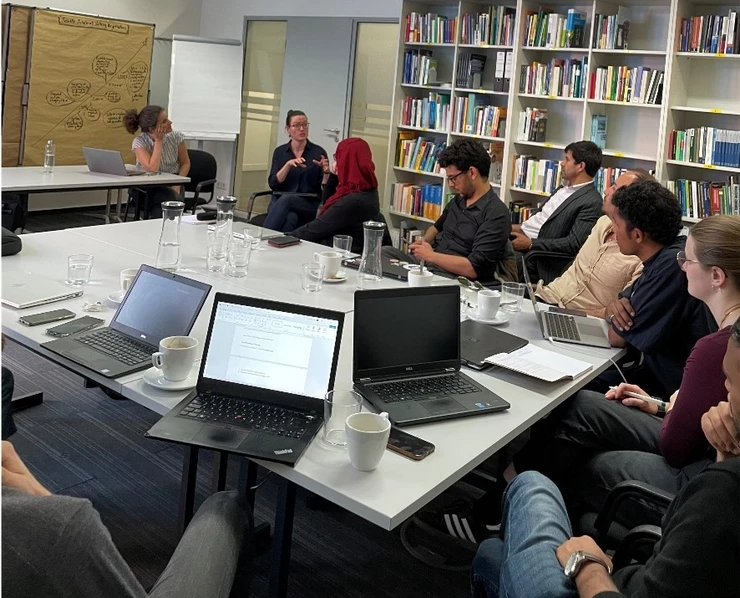
Day one: adelphi
Several students traveled with Prof. Goldthau on an early-morning ICE train from Erfurt (tickets arranged via the Brandt School) and met with their classmates upon arrival in Berlin. After lunch, the class convened at adelphi, where they met with Dr. Maria Apergi, senior advisor, and Daria Ivleva, senior advisor and co-lead on climate policy.
At adelphi, students had the chance to hear from their hosts on new energy-related research being done and were able to ask a number of questions. They were encouraged to discuss the research’s assumptions, methodology, and more – adelphi’s approach, as the class was told, is to value input over seniority, and the group discussion reflected that openness.
The students also got to exercise their policymaking skills via a mock stakeholder-engagement exercise. Their hosts led them through the steps used in designing a typical stakeholder engagement strategy and split the class into two groups. Each group was to devise a strategy on a specific topic – rural electrification or conservation agriculture – and then present their results to the other group (and take questions).
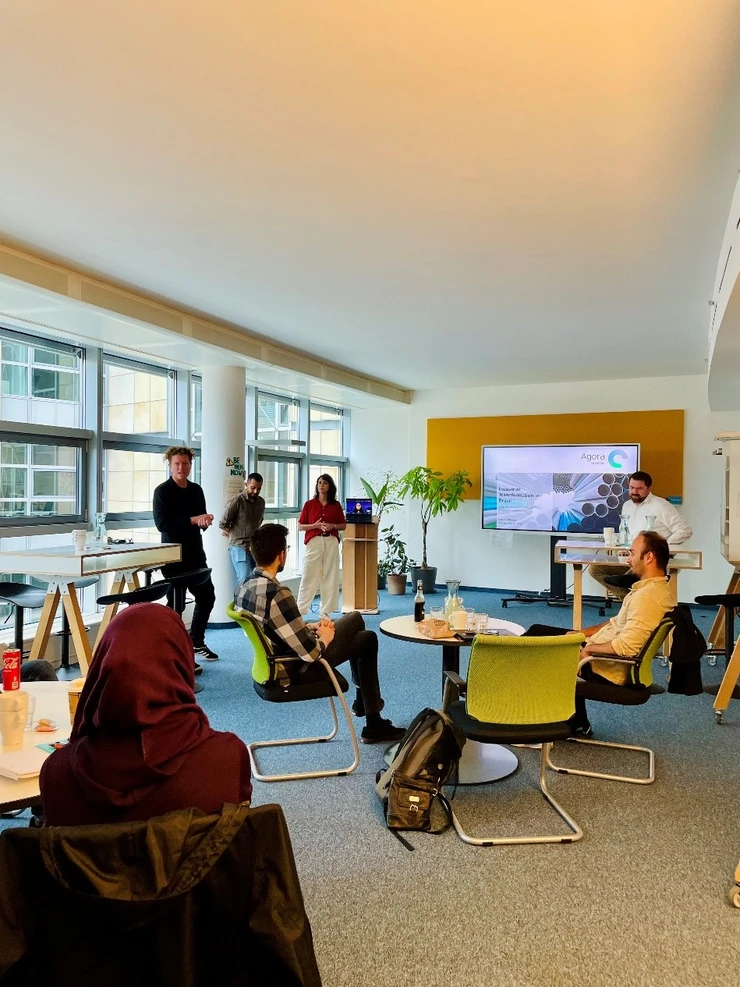
Day two: Agora Industry
At Agora Industry the next day, students were greeted by Director of Industry Frank Peter, as well as by Dr. Camilla Oliveira (project manager industry) and Zaffar Hussain (project lead PtX Africa). Director Peter gave a brief history of the organization and then turned things over to his colleagues, who led three discussions: one on industrial transformation in Southeast Asia, led by Kajol, Agora’s Project Manager Climate Neutral Industry SEA; a second on Brazil’s role in the clean energy transition, with additional thoughts on the enormous potential of the Global South for the transition (led by Dr. Oliveira); and a third on green hydrogen (led by Zaffar Hussain).
Green hydrogen is widely seen as a crucial tool to further the clean energy transition, replacing high-emitting fossil fuel sources such as natural gas while retaining the physical character (molecules rather than electrons) necessary to use in existing systems. The name “green” comes from the fact that it is produced using renewable energy. Students got to witness the unveiling of Agora Industry’s new green hydrogen production costs tool several days before its official release. They also took part in an exercise in which they analyzed their own countries’ likely potential to be contributors at various stages of the green hydrogen value chain. This could range from green hydrogen exporters to importers to producers of, for example, “green iron” (green hydrogen-produced iron) to so-called frontrunners (countries with hydrogen industries incorporated into their own value chains). Other aspects, such as political feasibility, were also discussed.
Beyond the Brandt School
Of course, there was also the chance to meet with Brandt School alumni at the leavy Zollpackhof biergarten and take in summer-evening Berlin during a football championship. The city was alive with visitors.
Not only is Berlin a lively city and a major international capital, it is also a popular destination for Brandt School students, both in terms of internships and in terms of work after graduation. For example, it is home to various think tanks and other places where MPP students might look for future opportunities. Prof. Goldthau makes it a point to take students on a professional excursion of some kind each year to introduce them to some of the work being done…and to the people and organizations doing it.
The Brandt School would like to thank adelphi and Agora Industry for their time and for an invaluable session at each.
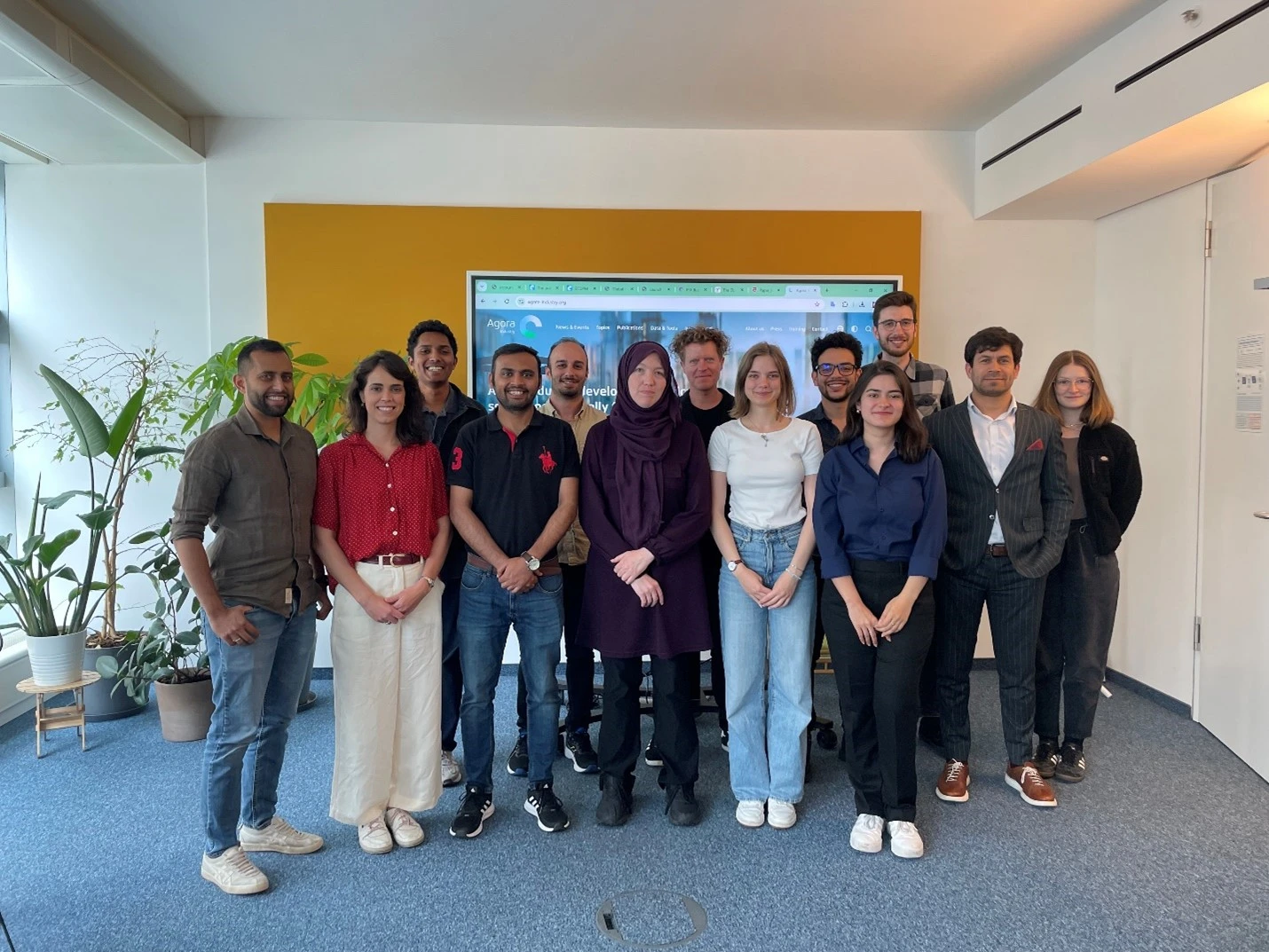
About the Author
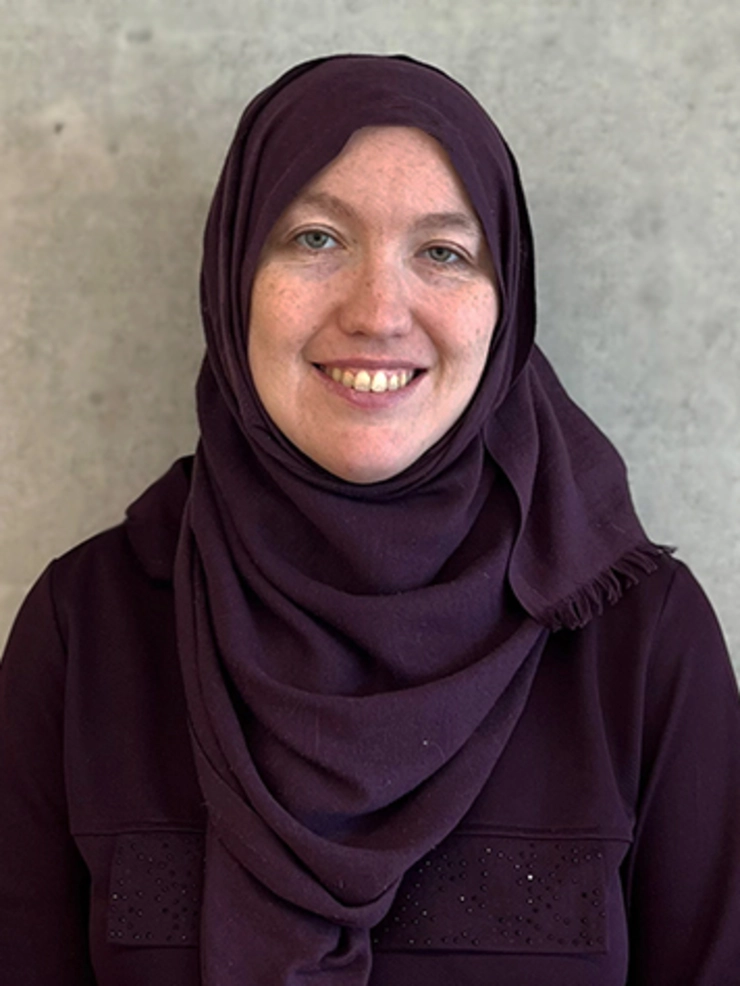
Sabrina Zearott is a first-year MPP student at the Brandt School, as well as the Student Assistant Editor of the Bulletin blog and podcast. She specializes in International and Global Public Policy and Development and Socio-Economic Policy and is currently focusing on the clean energy transition. She has over a decade of communications experience (including an M.A. in communication), primarily as a freelance and staff writer, as well as design/editorial experience. She is originally from the United States.